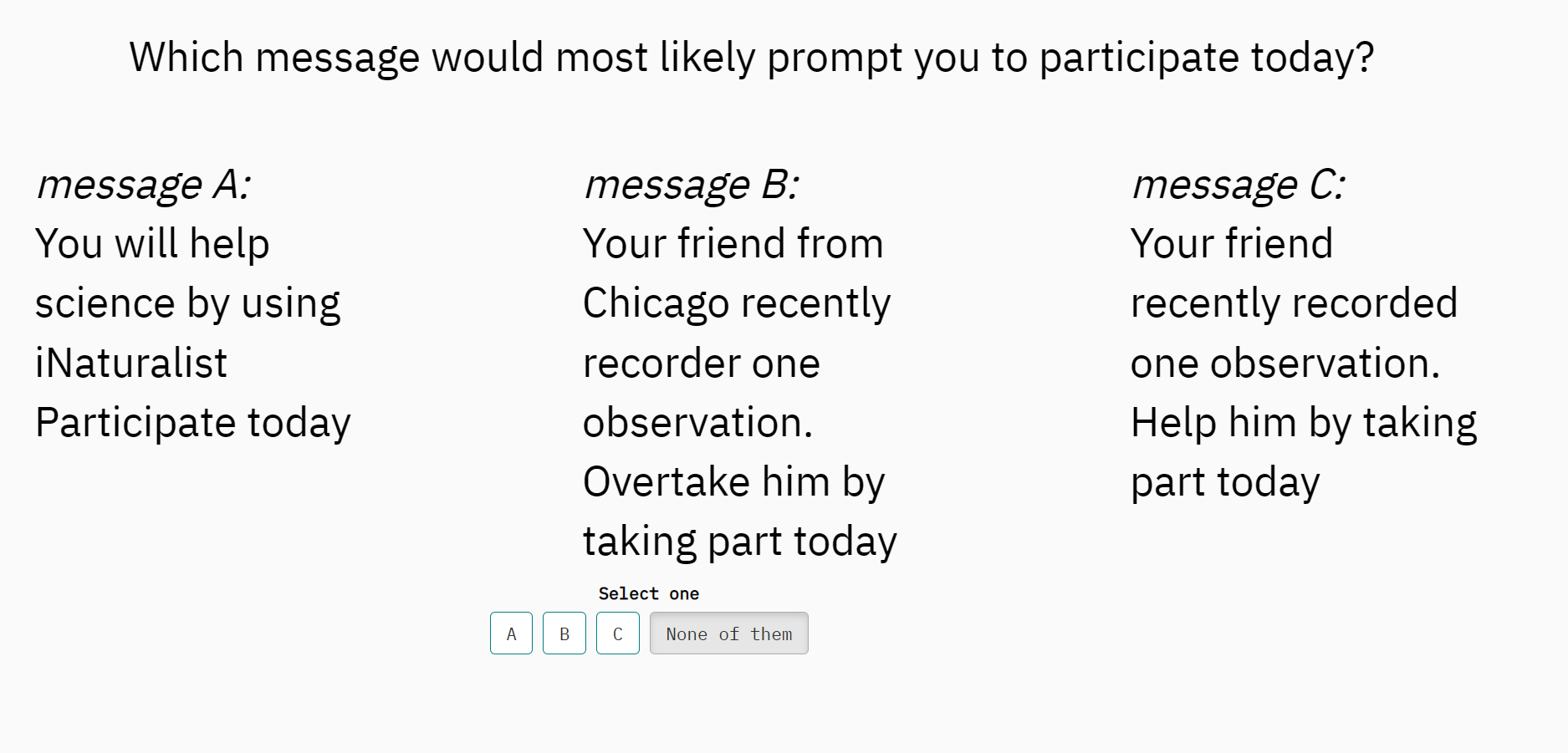While citizen science relies predominantly on the existing intrinsic motivation of participants, citizen science projects can fail to connect activities to participants' motivation, sustain it over an extended period, or lose in competing for participants’ attention. Thus, finding working ways of building and sustaining motivation for continuous contributions is one of the key success factors of citizen science projects.
The proposed study aims to explore the ways to support citizen science participation for the case of the iNaturalist project, which creates a unique digital infrastructure allowing citizen science activists and researchers to map and share with each other observations of biodiversity (pictures of plants, animals, insects, etc.) from the area where they are found.
One of the annual events on the platform is a three-day long City Challenge. In the framework of the City Challenge, thousands of users from different cities in Europe and the US compete in mapping plants and animals in their urban areas.
To find ways of engaging more users to stick in the project we aim to test design alternatives based on existing models of motivation in survey experiment with participants of the previous challenges. In the study each participant will be asked to judge a set of situations with varying conditions, for example:

Survey screenshot
The data will be analyzed with the help of Multilevel Multinomial Logit Model, so we will estimate effects of attributes, their interaction, while adjusting for individual level heterogeneity. Thus, the results will uncover working mechanisms for creation of motivational affordances to increase engagement in citizen science projects.
Understanding predominant motivation or stable clusters of predominant motivations have both direct implications of improving the challenge retention, and indirect contribution in allowing to test more sophisticated versions where motivation will be personalized based on participants’ perceptions of city geography using patterns uncovered from iNaturalist data mixed with social media data.
Alpha MVP is available at shinyapps